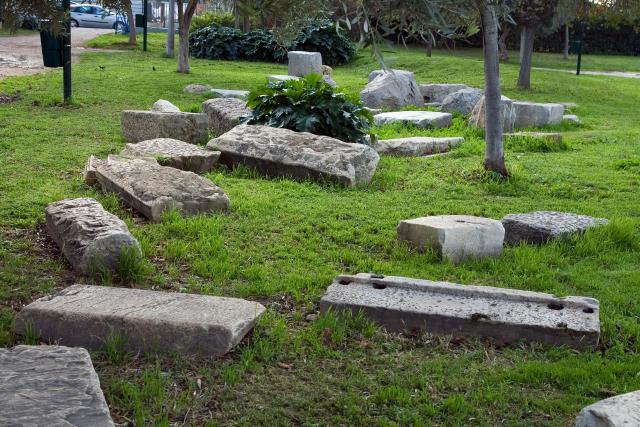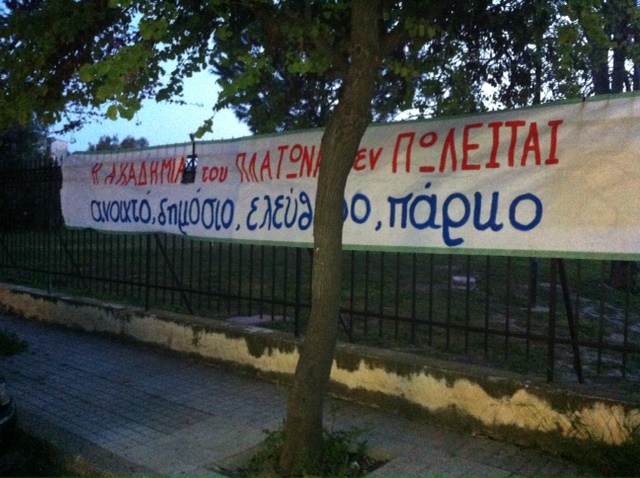Anastasia Balezdrova
Athens is an extraordinary city. The remains of its ancient past coexist with modernity so much that its inhabitants sometimes forget what they are close to at any time.
Let’s take Plato's Academy, for example. It is located in the Kolonos neighbourhood, close to Thiseio and Kerameikos and yet the visitors are few.
It was the first university thaT the ancient philosopher established outside the boundaries of Athens of the time. To this day, visitors can see the remains of the buildings that once housed the libraries, the dormitories of its students, who had come from different parts of the country, the mats, on which they fought, the water container, where they washed before returning to their classes.

In the large park, archaeologists have discovered altars of various gods, including Eros, where young people had placed every morning a little bouquet of flowers. The ten olives, whose olive oil was given as a reward, were there too.
The Academy is located in a large park and the region around it is specified as an archaeological site. The Museum of Athens will be built in its upper part and the exhibits are being stored in warehouses, waiting for the moment when they will decorate its windows.
A panel, which is hanging on the fence, draws the attention of the casual visitor. It reads, "Plato's Academy is not for sale. It is an open, public and free park." The residents of the neighbourhood have hung it there as they think that it is at risk of being overbuilt.

As Anastasia Papageorgiou told GRReporter, "The municipality is preparing to provide a large area to a private company to build a shopping mall. Under the plan, it will be located opposite the future museum."
She says that the citizen’s initiative, which a large number of the residents support, is strongly opposed to such a decision and that the people have different views as regards the development of the area.
"We suggest that Plato’s Academy should be proclaimed a world heritage site. The word "Academy", which appears in all languages and dictionaries in the world, was born here. All Plato’s students had been trained here and then, they set up universities in their homelands."
The desire of the people is that Plato’s Academy should become a global philosophical academy with departments of Greek and international universities around it. Accordingly, the area around the academy should retain its nature and atmosphere, and visitors should be able to examine closely the face of old Athens, the traditional crafts and the local community’s life. "We do not want the neighbourhood to become a line of cafes and restaurants, as happened with Thiseio and Kerameikos. With proper planning, small family businesses can be created that will complement each other. Thus, the region will achieve economic development that will not contrast with the history and significance of the academy."
Her story has made it clear that the municipality does not share the enthusiasm of the people and intends to allow the construction of the mall, although they say that it will be illegal because the specific area is defined as industrial and the law does not allow a change in its right of use.
At the same time, the city government has not accepted the proposal of the Onassis Foundation to build a digital museum of Plato on a plot, which is located opposite the park. "They have put a fence around it overnight and stone blocks that were in the park before, just because someone has decided that he does not want the museum."

The residents are determined to defend their position, especially bearing in mind that the law obliges the authorities to seek their opinion when it comes to radical changes. Most recently, the Supreme Administrative Court has issued an order limiting the right to build in the area around the park and stipulating that the buildings shall not exceed a height of 15 metres.
2013 has been announced the year of Plato and in June, the residents will organize an international symposium with the participation of scientists from various international universities. "In his letter, one of them replied that he had already visited the academy and was not happy with its condition," says young Dimitris. He notes that an increasing number of people are uniting around the idea of an easy development of the region.